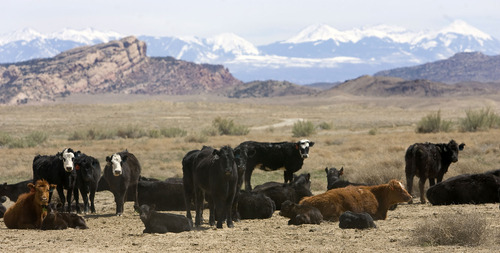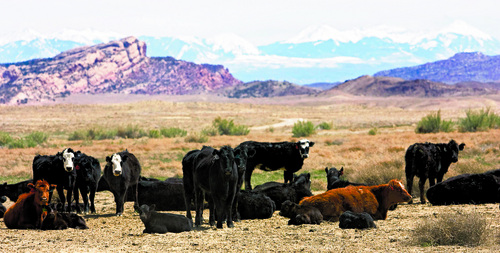This is an archived article that was published on sltrib.com in 2014, and information in the article may be outdated. It is provided only for personal research purposes and may not be reprinted.
A House committee advanced a wilderness bill Tuesday, but it's not what you think.
The Utah Wilderness Act would not protect any specific pristine landscapes. But for the 30 million acres of public land that Utah is demanding from the federal government, the act would provide a framework for the state to eventually designate and manage sections as wilderness areas.
HB160 is aimed at capturing the messaging high ground over Utah's public land battles with the feds and environmentalists, according to sponsor Rep. Stephen Handy, R-Layton.
Many conservation-minded people believe that Utah's real intent behind the land transfer drive is to open these public lands for unfettered resource extraction, he said. This perception, however wrong, is becoming reality, warned Handy, a public relations professional.
"We value these natural wonders and our access to them in every way that we value our families," Handy told the House Natural Resources, Agriculture and Environment Committee.
"HB160 demonstrates that we are committed to a management plan that codifies the potential designation of wilderness as part of Utah's public lands portfolio," he said.
The bill mirrors the federal Wilderness Act, but lays out a "Utah way" for managing wilderness that weds a conservation ethic with multiple use.
It would bar most commercial enterprises and permanent roads within wilderness, as well as temporary roads, motorized equipment and mechanical transport, except to meet minimum requirements for administration.
Existing grazing would be protected and allowed to continue. Existing mineral leases would be honored inside newly designated wilderness for up to 20 years, but no new leases would be issued.
Prospecting for water and developing it would be allowed, including building any required power projects or transmission lines.
If a designated area enclosed private land, the landowner would have the right to reasonable access.
"The bill allows access both to private property and mineral leases," said Assistant Attorney General Tony Rampton, who helped draft the measure.
To make sure the bill wouldn't lock out people, Republicans struck key language that echoed the famous 1964 federal act, which aims to "recognize and protect in perpetuity areas where the earth and its community of life are untrammeled by humans and where humans are visitors that do not remain."
Under Utah's 2012 Public Lands Transfer Act, under legal attack by conservationists, the state is to assume title to most land administered by the Bureau of Land Management and the U.S. Forest Service by the end of the year. National parks and wilderness areas are not targeted for transfer.
HB160 would require the Public Lands Policy Coordinating Office to survey transferred lands to find potential conservation areas. The office would then have five years to review the candidates to be designated as "protected wilderness" in the Utah Wilderness Preservation System.
"The process of review would require extensive coordination with local government and the public, and the review and correlation of a great deal of data," wrote John Harja, the state's senior public lands policy analyst, in an explanation of the bill.
Still, a fiscal note indicated the bill would "not materially impact the state budget."
Support for the bill came even from committee chairman Rep. Mike Noel, a Kanab Republican known for opposing impediments to mining, drilling, logging, motorized recreation and grazing on the public domain.
"It's hard for me to say the 'w' word, but I believe the state can do a better job and there are areas that need to be protected," Noel said. "They are special areas for people."





